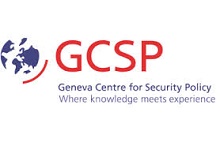11th International Security Forum
[Update] The following is a report from the session on cybersecurity and governance of the digital domain, which took place on 14 June as part of the International Security Forum (13-15 June).
Cybersecurity and governance of the digital domain
Cybersecurity and Governance of the Digital Domain, a session during the International Security Forum (ISF) on 14 June, discussed the misuse and threats in cyberspace, the role and responsibility of the private sector and government, and the strategies that can be taken at a national security level.
Dr Gustav Lindstrom (Head of the Emerging Security Challenges Programme at the Geneva Centre for Security Policy (GCSP)) mentioned that cyber is an opportunity for innovation and growth for human beings. However it may be leveraged for malicious use. Lindstrom said that non-state actors are applying cyber capabilities that execute terrorist attacks, identify critical nodes, and reduce risk. The measurement of prevention and the management of consequences at technical and institutional level were also discussed. Small states like Trinidad and Tobago and some developed countries have also developed national cyber strategies and the development of those strategies do not depend on the size or location of the countries. The presentation concluded with a discussion of future cyber trends, which include the increasing number of critical infrastructures and services online, large hacking attacks and threats, developments in cloud computing, encryption, and undersea cables.
Dr Camino Kavanagh (Advisor, ICT4Peace) provided an overview of emerging responses to cyber terrorism from the public and private sectors. Kavanagh mentioned that there is a growing usage of ICT for attacks on social media and hacking of knowledge sharing and financial data. Although some sectors have been affected by cyber terrorist attacks, the military and education sectors have not yet been attacked. Cooperation between governments, business, international organisations, and individual citizens has been encouraged to have efficient transparency and accountability.
The question of controlling surveillance was raised and Lindstrom answered that a strategic approach of collecting only the information required should be used. Issues of the jurisdiction of cyberspace and security were addressed during the session where the panellists responded that government and the private sector should work together to tackle the issues.
by Aye Mya Nyein
Event announcement
The Geneva Centre for Security Policy (GCSP) will host the 11th ISF from 13 to 15 June 2016 at the Maison de la Paix in Geneva, Switzerland.
The biennial International Security Forum brings together some 350 dignitaries who make and shape international security affairs. For 22 years world diplomats, ministers, government officials, military and private sector personnel have come to ISF.
The ISF Conferences have provided discourse on traditional challenges such as nuclear disarmament and regional conflicts, and emerging issues such as asymmetrical warfare and climate change. The 2016 edition of the International Security Forum will be held under the theme of Global Disorder – Security in a World Disrupted.
The 11th ISF hosted by the GCSP, sponsored and co-organised by the Swiss Federal Department of Defence, Civil Protection and Sport and the Swiss Federal Department of Foreign Affairs as an official Swiss government contribution to the Partnership for Peace. The main conference partners include the Geneva Centre for the Democratic Control of Armed Forces, the Geneva International Centre for Humanitarian Demining, the Geneva Centre for Security Policy, the Graduate Institute of International and Development Studies in Geneva, and the Centre for Security Studies at the Swiss Federal Institute of Technology in Zurich.
For source and more information, please visit the conference website.
|full_html

